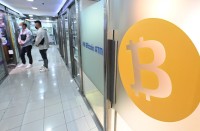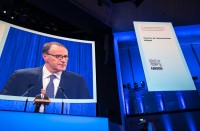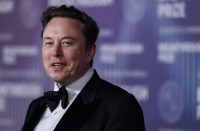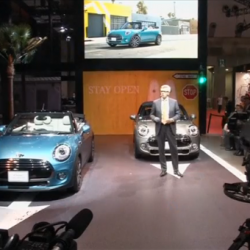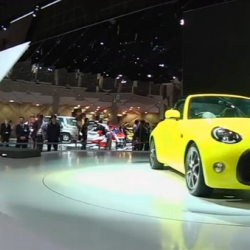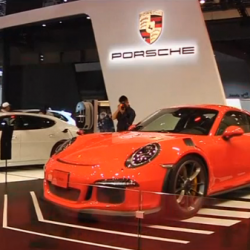Hundreds of cars were on display at the Tokyo Motor Show 2015 on Wednesday (October 28), where hydrogen fuel-cell cars by Japanese auto manufacturers Toyota Motor Corp and Honda Motor Corp stole the spotlight.
Toyota Motor unveiled the FCV Plus, a hydrogen fuel-cell car with a light blue theme.
Toyota is keen to maintain the alternative propulsion lead it established a decade and a half ago with the full hybrid electric Prius.
Honda Motor Co also unveiled a ‘mass market’ hydrogen fuel-cell car that will go on sale in Japan in March, to be followed by launches in the United States and Europe, key potential markets for the technology.
“We want to create a society that produces, uses, and connects with hydrogen power,” Honda Motor Co Chief Executive Officer Takahiro Hachigo said at a press event at the show.
Honda’s main advance on Toyota’s technology is its reduction of the fuel-cell stack – the ensemble of fuel-cell, motor and transmission – by a third from a 2008 model it leased to a few private buyers in California in a subsidized trial deal.
Meanwhile, China, a major oil importer and blighted by air pollution, is pushing for all-electric (EV) cars, offering incentives to buyers, forcing global automakers to share their technology, and opening its market to tech firms and others to produce electric vehicles.
For a decade, Beijing has pushed for the EV to become a mass-market car, hoping a low entry barrier will allow its relative late comers to close a competitive gap with global rivals who have a century’s head-start in traditional combustion engines.
“We are in electric car for long time, and we are really determined to keep our advance into this technology,” Nissan Motor Co Chief Executive Carlos Ghosn said.
The current economic slowdown in China has many in the market worried about the overall growth in the car industry but not Ghosn.
“I am of the people who think that this is a temporary slowdown. The economy in China has been growing so fast, from time to time it needs a period to retune. That’s what’s taking place today,” Ghosn added.
“Lets call it a normalization. I think we all got so used to fifteen percent increase, twenty percent increase, but now all the sudden if you see a six or seven percent increase, people are saying, oh China is in a crisis. I think in all the other countries, we would be extremely happy as economists seeing six or seven percent growth,” German auto manufacturer BMW Executive Board Member and head of Mini, Peter Schwarzenbauer also said about the Chinese economy.
Japan sees the future differently and is investing heavily in fuel-cell technology and infrastructure as part of a national policy to foster what it calls a ‘hydrogen society’, where the zero-emission fuel would power homes and vehicles.
To be sure, China and Japan are not alone. GM has joint research with Honda on hydrogen cars, while BMW is Toyota’s fuel-cell partner. Daimler in Europe and Hyundai Motor in South Korea are also carrying out their own research and development on a hydrogen car.
Japanese Prime Minister Shinzo Abe’s growth strategy includes calls for subsidies and tax breaks for buyers of fuel cell vehicles, relaxed curbs on hydrogen fuel stations and other steps on a roadmap to promote hydrogen energy.
The ruling party wants to bring down the cost of a fuel-cell car to about $20,000 by 2025, and the government aims to create 100 hydrogen fuel stations by March in urban areas where the vehicles will initially be launched.

